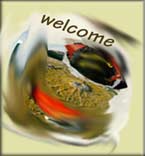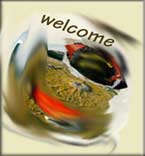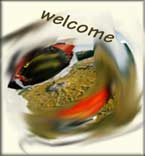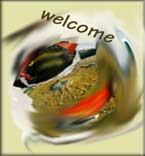Thinking Exercises for Those Willing to Learn. How To Think, How To Know, How to Develop Thinking Skills and Spot Logical Fallacies. Here: Tip Number One.
![]()
![]()
![]()
![]()
![]()
![]()
![]()
![]()
![]()
![]()
![]()
![]()
![]()
![]()
![]()
WELCOME
THE IDEA EMPORIUM
FULL MENU
explorations on ...
ANIMAL RIGHTS,
AN INNER VOICE,
GAMBLING IMPULSE,
STUPID OPINIONS,
RELIGIOUS RAGE,
GOOD THINKING,
and more ...
New!
Paranormal Proof
Warnings of Danger
Sept 2009
Feed the Bears?!
bears starving
Sept 2009
What's Narcissism?
and what's wrong with it?
Sept 2009
Fatal Flaw in
Economics of Growth
Aug 2009 MORE ALL
Hard Lessons About
Islamic History
August 2009
Deceptive Advertising
and Islam
July 2009
Conservative America
bad thinking
June 2009
The Ultimate Reality
are all religions equal?
Mar 2009
The Brain Game
Manifesto
good thinking,
great thrills
Mar 2009
Collective Guilt &
Political Correctness
past horrors,
current baggage
Feb 2009 MORE ALL
MORE ...
plus
Lots of Thinking!
A Celebration
of Thinking
Mar 2009
Western Tolerance,
Islamic Intolerance
Muslim outrage, Western
blindness - seen through
my curious eyes
Jan 2008 INTRO
MORE ...
or
MORE DETAIL
Imagination -
Hope and Horror
not just make believe
Dec 2008 MORE ALL
Open Secret on
Surviving Recession
Nov 2008 ALL
Bush, McCain,
Palin -
Armed &
Dangerous
Oct 2008 MORE ALL
Paranormal
or Para-nutty?
proof of life after death
or wishful thinking
Sept 2008 MORE ALL
Political Correctness
and Fundamentalism
Jan 2008 MORE ALL
Autism, Vaccines -
and Parents
May 2007 MORE ALL
Gambling -
Great? Gruesome?
May 2007 MORE ALL
How To Think -
Tip Number One:
Ask This One Question
Apr 2007 MORE ALL
Walls in the Mind,
They Cripple and Bind
inner walls,
invisible from within,
frustrating for outsiders
Jan 2007 MORE ALL
Don't Keep it Simple -
Keep it Alive
mental challenge -
the thrill of a lifetime
Dec 2006 MORE ALL
Animals and Ethics
a childhood NO to a god
Dec 2006 MORE ALL
Whose Dog Is It?
pets, ownership, slavery
Dec 2006 MORE ALL
The Rottweiler Pope,
The Danish Cartoon
and Muslim Moderates
the pope's remarks -
help or hindrance?
Sept 2006 MORE ALL
Mirror, Mirror,
Who is that Horror?
on the rage of the
righteous when coming
across mirrors
Sept 2006 MORE ALL
A Dangerous
Temptation -
Counter-Prejudice
the lure of hating back
Sept 2006 MORE ALL
Bush the "Righteous"
illusions, delusions, lies
Sept 2006 MORE ALL
The Pope Speaks
outraged Muslims protest,
kill nun, demand apology
Sept 2006 MORE ALL
Give Peace a Chance
by giving empathy
a chance
An Open Letter to
All People, and
for now, especially
all Muslims -
Feb/Aug 2006 MORE
The Rage
of the"Righteous"
on Muslim outrage
at a Danish cartoon
Feb/July 2006 MORE
This
Is Not Me
but it's a tempting
disguise due to the
"righteous"
MORE
Stupid
Opinions
stupid opinion #1
all opinions are equal
Aug 06 MORE ALL
logical fallacy
opinion #2
you are where
you are supposed to be
Aug 06 MORE ALL
Collective Sense of Guilt
Crazy Not Thinking
past horrors,
current baggage
Feb 09 ALL
Breaking
the Spell
of Irrational Opinions
rule #1 - don't start by
calling it a stupid opinion
Aug 06 MORE ALL
stupid opinion #3
everything happens
for a reason
stupid opinion #4
everyone always did
the best they could
stupid
opinion #5
we shouldn't
be judgmental
stupid
opinion #6
all religions are
basically the same
stupid
opinion #7
all cultures are equal
MoreIdea Emporium?
why? what?
plus exploration of the
definition of "idea"
em-po-ri-um
exploration of
the word
emporium
innerwear that dares
innerwear for those
who dare -
The Idea Emporium
About
thinking exercises -
pushups for brain flab
thinking exercises -
how to think,
how to reason,
how to know
- more -
possibly
coming soon
thinking exercises -
pushups for brain flab
thinking exercises -
how to think,
how to reason,
how to know
![]()
![]()
![]()
![]()
![]()
![]()
![]()
![]()
![]()
![]()
![]()
![]()
![]()
![]()
![]()

How to think like a genius?
A good start: check your thinking.
Lots of people have never checked,
have assumed their thinking is fine -
and it may be. But maybe not.
How to Think - Helpful Tip Number One:
Ask Yourself This One Question
The tip is coming right up.
But first, who are you? Two possibilities come to mind.
Possibility One. You could be one of the people who, like me, is often frustrated by bad thinking, irrational thinking, logical fallacies - by the all too widespread inner barriers against thinking well. You enjoy thinking exercises, enjoy using and building your mental muscles. You like to learn how to think better. Thinking exercises: like chocolate to a choco-holic.
In that case, the tip may be especially useful for you in reaching other people. But, as you most likely know, while it's easy to get a growl from people who don't like having their thinking challenged, it isn't easy to get them to really engage with what you're saying.
If you do find it easy, please let me know how you do it. Send me an email starting with HERE'S HOW I DO IT. I'm always eager for good strategies in reaching people. If you're wiling, I'll gladly post your strategy.
Possibility Two. You could be one of the people convinced that your thinking is as good as anyone else's, and no one is going to tell you different. In that case, I expect stuff like,
I'm entitled to my opinion. (More on this here.)
All opinions are equal.
I know what I believe.
Who are you to say that there's something wrong with my thinking?
In other words, no thinking exercises, please.
One response is to directly tackle the opinion that all opinions are equal. But that's quite a thinking exercise.
Today's response. If I saw someone hammering their fingers, few would dispute that How To Hammer tips might be helpful. The person might even appreciate learning how to get a nail into the wall without sacrificing a finger in the process.
But How To Think - that's another story.
Why is that? That's another question altogether. I thought about that a lot - I love thinking exercises. In the first place, they help me deal with frustration - and a bigger goal is to figure out a way to help things change.
So why are so many people reluctant to think? One, thinking is work. It's challenging.
But some people love challenges - except when it comes to certain kinds of thinking. In that case, a possibility is that the barrier to thinking links with unrecognized collective guilt resulting in irrational political correctness.
****
Here I will give just one big pointer that can help enormously with thinking. There's a lot more. For example, I've found 2 basic essential ingredients to good thinking. This tip goes beyond those basics.
TIP NUMBER ONE
Whatever the idea/thought/opinion/belief, ask this question:
If this is so, what are the ramifications?
Or more simply, if this is so, what does this mean?
Go on and on until you see the full extent of what it means.
And if answering that question leads to nonsense,
then the original belief also does not make sense.
Example. Many people hold that "everything happens for a reason." One student (I'm a college teacher) is convinced her younger brother got cancer for a reason - he's become a much more caring person.
If this is so, what does it mean? It means that, for some god or cosmic force, the best way to teach her younger brother to be nicer, was to give him cancer.
Next step. Does it make any sense that some god or cosmic force could only teach, or would prefer to teach, her younger brother to be nicer by giving him cancer?
Another student asserts that, if it hadn't been for the Holocaust, Jews wouldn't have a country of their own.
Again, does it make sense that some deity or cosmic force held it would be good for Jews to have a country, but could only achieve that goal - or preferred to achieve it - by having six million Jews murdered?
It does not make sense.
There's a zero violence tolerance at my college. But for many people, it's fine if a deity or cosmic force metes out horror. Slavery. Rape. Murder and mayhem. Genocide. It happens for a reason, they say.
I say, think it through. That tenet makes no sense.
The most common response: what I'm bringing up is too extreme and so it doesn't matter. In other words, no need to listen, no need to think. Oh, well.
My point. Yes, one can learn from horrors. But it makes no sense that some god or cosmic force can only get us to grow by having us endure calamity after calamity.
By the way, yes, it does make sense that things have causes - environmental, historic, genetic. It makes no sense, though, that everything we are living is happening for "a reason" - for some lesson, whatever that may be.
And that's it for How To Think tip number one.
The tip, once again:
Think things through.
Figure out everything that follows from the statement.
Figure out: if this belief/idea/opinion is true,
what other things must also be true?
****
For more thinking through, here's more on what I've labeled Stupid Opinion Number One - the opinion that we are all where we are meant to be.
****
What's your favorite How To Think tip? And if you try my question on someone, how do they respond? I'd love to hear from you.
signed,
Elsa
April 1, 2007 - but this is no April fooling
copyright © Elsa Schieder 2007, 2009 - all rights reserved
And then, lots on good thinking -
including finding the good thinking g-spot.
And, finally, click here to stay in touch.
More Stimulating GOOD THINKING.
FREE Updates.
Plus, INSTANT ACCESS to
2 ESSENTIAL INGREDIENTS
for GOOD THINGING

Why stay in touch?
Click here for
3 good reasons.
Thinking Exercises for Those Willing to Learn.
How To Think, How To Know,
How to Develop Thinking Skills and
Spot Logical Fallacies.
Here: Tip Number One.
IDEA * EVALUATION * CONCLUSION * INSIGHT * COMMENTARY * CONTROVERSY *
INTELLECTUAL CURIOSITY leading to THINKING EXERCISES leading to
THINKING LIKE A GENIUS
or at least to an understanding of:
HOW TO THINK, HOW TO REASON, HOW TO KNOW,
what are CRITICAL THINKING SKILLS,
what are LOGICAL FALLACIES.
The Idea Emporium: good thinking vs logical fallacies,
critical thought vs bad arguments.
How to Think. How to Know. How to Reason.
Brain Training.
Thinking Exercises
How to think like a genius? One, if that happens, great. But, like how to be a sports star - first what about learning how to play the game. Of course, if you're already a great player, then it makes sense to shoot for the top. Otherwise, you may just throw in the towel. Oh, I'll never get to Wimbleton. Okay, maybe not. But first see if you can get the ball over the net. That should be possible.
So, how to think? How to know? How to reason? Do thinking exercises, use logic. It's like tennis and basketball. You want to dribble, do dribble practice.
But if you're one of those what want to know how to think better, or to make sure your thinking is on track, probably you know this and agree.
The challenge comes from those who go,
What do you mean? Thinking exercises?! I know exactly what I think. No one's going to tell me how to think. Next someone's going to want to tell me how to breathe.
Well, yes. Often people have a lot to learn about breathing well.
****
Maybe best to walk away and just wonder why so many people flat out refuse to look at their thinking.
****
Best to get back to those interested in thinking. Some want thinking made easy, ideas made easy; some like challenges. Thinking made easy: there are tracks laid out. Lots of people have figured out how to think well. I've come to my own short list: just 2 essential ingredients for thinking. Thinking well, using critical thinking skills, is a cinch. The obstacles are elsewhere - in a society which puts up barriers against good thinking, in an education system which does not teach elementary good thinking skills. It's like not teaching reading, writing and arithmetic. Basic.
Critical thinking skills? Easier than fractions. Concept thinking - not overwhelming either. Little kids work with concepts all he time: good, bad, right, wrong. They may not be very sophisticated. But even basic concept thinking is within their grasp.
As for logical fallacies - I don't think I'd use terms like logic fallacy, logical fallacy, at least not until I'd shown a few examples - but surely any average 8-year-old could grasp that it's a logical fallacy, an error in logic, to hold that all opinions are equal: it means saying the opinion that they deserve to be punished if they are good is equal to the opinion that they should be rewarded if they are good.
****
So anyway, thinking exercises for all - the sooner the better. How to think exercises, how to reason, how to know. Yes, and about time, from early childhood up.
It doesn't go against the emotions, by the way. I'd even say it should build self esteem and self confidence to have tools where we can know we are doing something well.
My hope: that we get to a critical mass where critical thinking becomes the norm rather than the exception, that we reach a tipping point where barriers to learning critical thinking skills come tumbling down.
The goal: it isn't perfection. Just a perfectly ordinary capacity to exercise, to enjoy, our inborn capacities.
Elsa
June 16, 2009
copyright © Elsa Schieder 2009, 2011 - all rights reserved
Thinking Exercises for Those Willing to Learn.
How To Think, How To Know,
How to Develop Thinking Skills and
Spot Logical Fallacies.
Here: Tip Number One.
![]()
IDEA * EVALUATION * INSIGHT * CONTROVERSY * THINKING EXERCISES
INTELLECTUAL CONFLICTS, as on HOW TO THINK,
HOW TO DEVELOP THINKING SKILLS,
HOW TO SPOT LOGICAL FALLACIES,
THE IDEA
EMPORIUM
![]()
More on ... why subscribe?
inner magic released
from stuck in a bottle
to developing your potential
creative development, living fully
***SOCIALIZEIT***
more ...
THE IDEA EMPORIUM
A CELEBRATION OF GOOD THINKING
THE IDEA EMPORIUM
NO HOLDS BARRED THINKING
"It is a fact readily acknowledged,
that for humans,
an idea is much more powerful
than a fact."
















***NAVBAR***
Elsa's Adventures in Internet Land
______________________________________________________________
home about site map privacy policy terms of use contact
______________________________________________________________
design, site construction
- Elsa Schieder
copyright © Elsa Schieder, 2006-2015 - all rights reserved
copyright © elsas-word-story-image-idea-music-emporium.com, 2006-2015 -
all rights reserved
CLICK
HERE TO CONTACT
Elsa
______________________________________________________________
